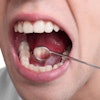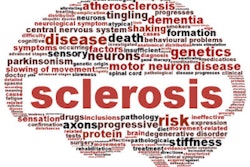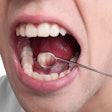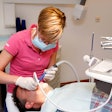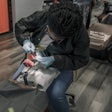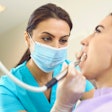
A vaccine for caries could be possible under a new division of the U.S. National Institutes of Health (NIH) tasked with using "crazy, bold ideas" to prevent and cure disease. Health leaders introduced the proposed agency at a September 9 meeting of the National Institute of Dental and Craniofacial Research (NIDCR).
The Biden administration hopes to create the Advanced Research Projects Agency for Health (ARPA-H), the NIDCR said. The agency would fall under the larger umbrella of the NIH. If given the greenlight, it would use the latest technology and advances to develop medical breakthroughs to prevent, detect, and treat disease.
The agency's mission would be to benefit the health of all people in the U.S. by catalyzing health discoveries that cannot be achieved through commercial activity or traditional research, said Tara Schwetz, PhD, the assistant director for biomedical science initiatives at the U.S. Office of Science and Technology Policy.
"ARPA-H would identify those opportunities that seem like they are on the edge of being possible," Schwetz said. "Unless we take a bold and risky approach, we won't know."
Researchers have a unique opportunity to accelerate medical discoveries thanks to the unprecedented rise in cancer immunotherapies and highly effective COVID-19 vaccines. Research projects may one day leverage these technologies to develop mRNA vaccines to prevent cancer or create molecular "ZIP codes" that target drugs to specific cell types and tissues, eliminating severe side effects, Schwetz said.
While Schwetz said the goal of ARPA-H is to develop capabilities that are "disease agnostic" with broad impact, NIDCR Director Dr. Rena D'Souza, PhD, said the vision could benefit oral health and related diseases.
"Any preventive or in utero advances would be very beneficial," D'Souza said. "An anticaries vaccine is no longer science fiction."
However, Dr. Joel Strom, a practicing dentist in Los Angeles and a member of the NIDCR's National Advisory Dental and Craniofacial Research Council, questioned whether an mRNA vaccine for caries control is something dentists would use.
"Will clinicians be involved to shed light on whether something will function well in a dental setting?" he asked.
All stakeholders, including patients and clinicians, would be part of the conversation, Schwetz said. The agency would engage with patients and providers to develop use-driven applications.
For the division to come to fruition, U.S. lawmakers would need to support both the agency and its funding in the $3.5 trillion congressional budget bill. The budget earmarks approximately $6.5 billion for the division. If approved in its current form, the budget would allocate funding for ARPA-H over a three-year period, beginning in fiscal 2022.

